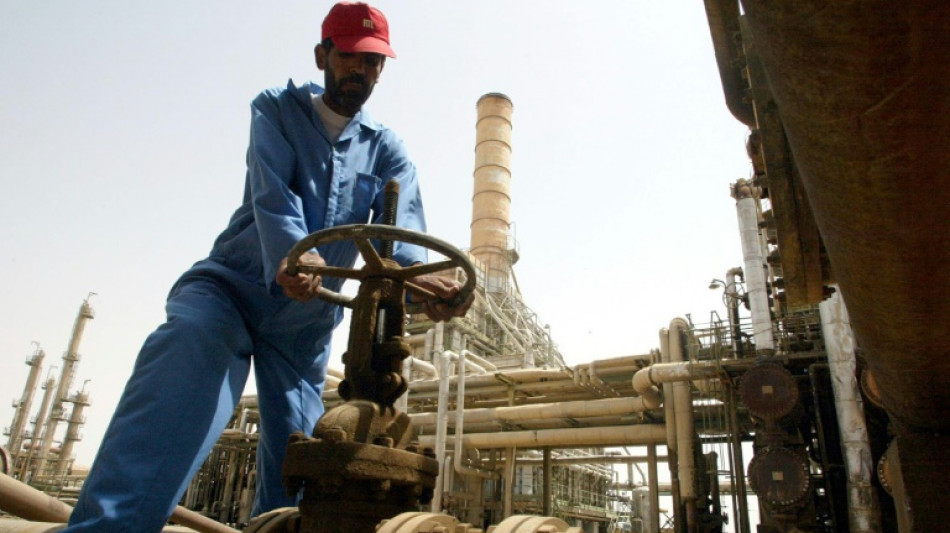

OPEC+ announces sharp increase in July oil production
Saudi Arabia, Russia and six other key OPEC+ members announced on Saturday a huge increase in crude production for July.
They will produce an additional 411,000 barrels a day -- the same target set for May and then June -- according to a statement, which is more than three times greater than the group had previously planned.
In recent years the 22-nation group had agreed to daily reductions of 2.2 million barrels with the aim of boosting prices.
But in early 2025, leading members of the group known as the "Voluntary Eight", or V8, decided on the gradual output increase and subsequently began to accelerate the pace.
The moves have resulted in oil prices plummeting to around $60 per barrel, the lowest level in four years.
- Trump pressure -
OPEC+ "struck three times: (the output target for) May was a warning, June a confirmation and July a warning shot", Rystad Energy analyst Jorge Leon told AFP.
"The scale of the production increase reflects more than just internal supply dynamics," he said. "This is a strategic adjustment with geopolitical aims: Saudi Arabia seems to be bowing to Donald Trump's requests."
Shortly after taking office, the US president called on Riyadh to ramp up production in order to bring down oil prices, meaning cheaper prices at the pump for American consumers.
Saturday's decision comes after a meeting of all OPEC ministers on Wednesday, where the alliance's collective production policy was reaffirmed.
The decision is officially justified by "healthy market fundamentals" covering oil reserves and structural demand growth during coming months.
- Riyadh 'angry' -
But markets have met this view with scepticism amid concerns about demand and a trade war launched by the United States.
Analysts see several possible motivations for the production hikes, one of them being Saudi Arabia and others penalising members for not keeping to their quotas under the cuts first agreed in 2022.
The increase is all the more likely due to "the latest statements of Kazakh Energy Minister Yerlan Akkenzhenov, who has apparently already informed OPEC that his country will not reduce production," said Thu Lan Nguyen, an analyst at Commerzbank.
"Saudi Arabia is angry with Kazakhstan", which is seen as one of the main laggards, and which "produced 300,000 barrels per day more than its quota," said Bjarne Schieldrop, an analyst at SEB.
Analysts meanwhile do not foresee a plunge in oil prices when markets open Monday as the announcement was largely anticipated, instead resulting in a "moderate" reaction.
On Friday, the benchmark Brent crude futures price had settled at $62.61 per barrel, while West Texas Intermediate was at $60.79.
X.Maes--JdB



